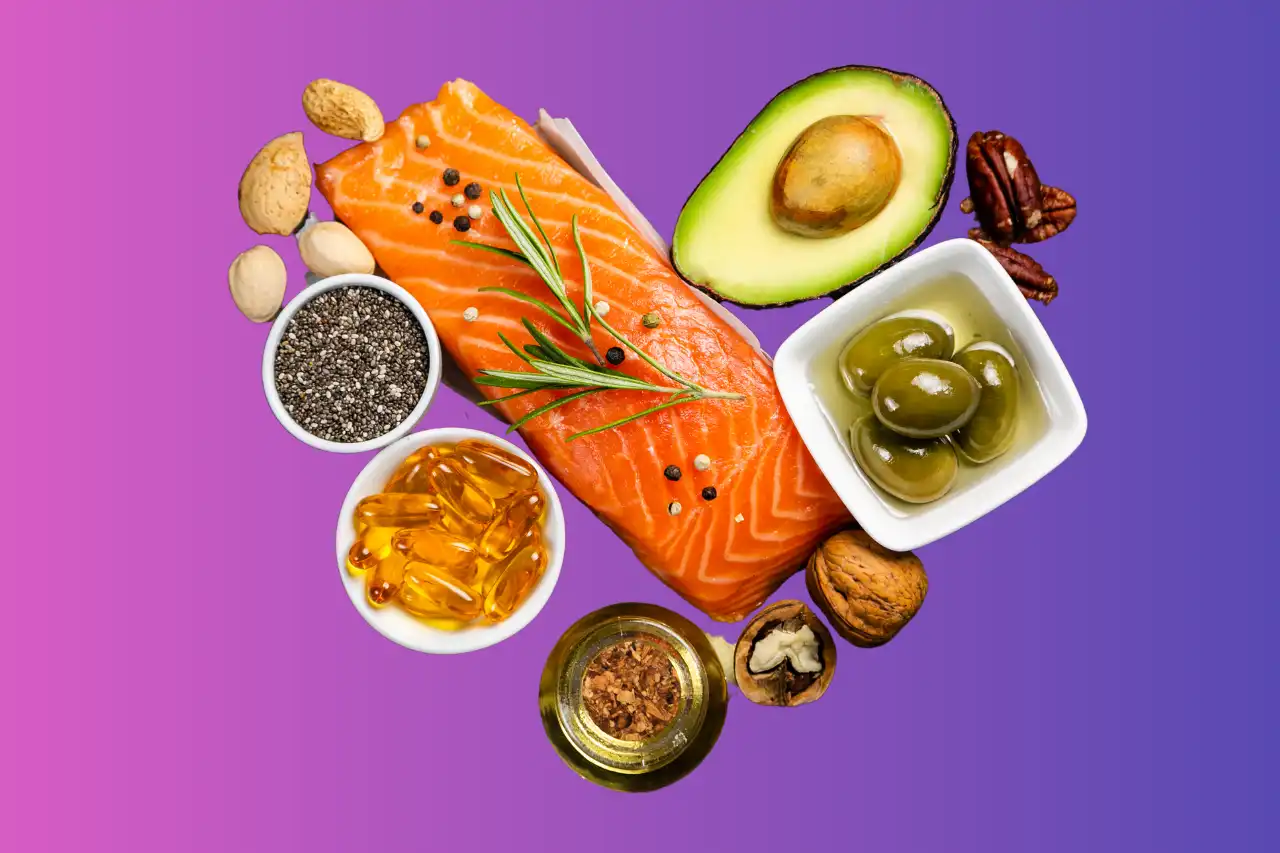-: UNSATURATED FAT :-
UNSATURATED FAT – THE HEART-HEALTHY ESSENTIAL…!!!
Unsaturated fat is a type of healthy fat that remains liquid at room temperature and is primarily found in plant-based foods and fish.
It is divided into two main types: monounsaturated fats (MUFAs) and polyunsaturated fats (PUFAs), including essential omega-3 and omega-6 fatty acids.
These fats play a crucial role in overall health, particularly for the heart and brain.
Daily Requirements
Fat intake, including unsaturated fat, should make up 20-35% of total daily calories, with a focus on healthier unsaturated sources:-
Children
- Infant (0-12 months) :- 30-40% of total calories from fat, mostly unsaturated.
- Children (1-3 years) :- 30-40% of total calories from fat.
Teens to Adults
- Teens (4-18 years) – 25-35% of total calories from fat.
- Adults 19+ years – 20-35% of total calories, with saturated fat limited and more focus on unsaturated fats.
Function on different Organ
- Brain
Details
Unsaturated fats, especially omega-3 and omega-6 fatty acids, are essential for brain health.It supports cognitive function, learning, and memory retention. Also helps in nerve signaling and communication between brain cells, reduces the risk of neurodegenerative diseases like Alzheimer’s. And plays a key role in mood regulation and mental health, reducing the risk of depression and anxiety.
- Heart
Details
Unsaturated fats help regulate cholesterol levels and maintain cardiovascular health. It prevents the buildup of plaque in arteries, reducing the risk of atherosclerosis, heart disease, stroke, and high blood pressure. Also it lowers the level of bad cholesterol (LDL) while increasing good cholesterol (HDL) and Improving the blood vessel function and circulation.
- Heart
Details
Iodine indirectly affects heart health by maintaining optimal thyroid hormone levels. These hormones regulate heart rate, blood pressure, and overall cardiac output. An imbalance can lead to arrhythmias, palpitations, or bradycardia (slow heart rate).
- Skin & Hair
Details
Unsaturated fats support cell membranes, keeping skin and hair nourished.
It maintains skin hydration and elasticity, prevents dryness,reduces inflammation, helping with conditions like eczema and psoriasis. Also it supports collagen production for youthful and firm skin.Strengthen hair follicles, reducing hair loss and promoting healthy growth.
- Bone and Joints
Details
Unsaturated fats play a key role in reducing joint inflammation and maintaining bone density. It reduces stiffness and pain in conditions like arthritis, improves joint flexibility and mobility. Also it helps in calcium absorption, supporting bone strength and reducing the risk of osteoporosis.
- Pancreas
Details
It plays a role in insulin sensitivity and pancreatic health. Improve insulin function and help to regulate blood sugar levels.
Thus reduces the risk of type 2 diabetes and pancreatic inflammation.
Symptoms incase of Deficiency
- Dry and scaly skin.
- Poor memory and concentration.
- Increased risk of heart diseases.
- Joint pain and stiffness.
- Mood swings and depression.
Diagnosis
The most commThere is no direct test for unsaturated fat deficiency, but lipid profile tests (including HDL, LDL, triglycerides) and omega-3/omega-6 ratio tests can help assess fat balance in the body.
Food Sources
Veg Sources
- Oil
- Olive oil.
- Avocado oil.
- Canola oil.
- Fruits
- Avocados.
- Nuts
- Almonds.
- Walnuts.
- Cashews.
- Peanuts.
- Seeds
- Flax seeds.
- Chia seeds.
- Sunflower seeds.
Non-Veg Sources
- Fatty fish
- Salmon.
- Mackerel.
- Sardines.
- Kippers.
- Herring.
- Trout.
- Tuna.
- Lean poultry (in moderation)
- Chicken.
- Turkey.
- Other
- Fish oil and Cod liver oil.
What if Overconsumption
Although unsaturated fats are beneficial, excessive consumption may lead to:-
- Gastrointestinal discomfort (bloating, diarrhea).
- Unintentional weight gain due to excess calories.
- Imbalance in omega-6 to omega-3 ratio, increasing inflammation.
Unsaturated fats are essential for heart health, brain function, and overall well-being. Including a variety of sources like nuts, seeds, fish, and plant oils while maintaining balance ensures optimal health benefits. Moderation is key—choosing the right types and amounts of unsaturated fats can help achieve a healthy and vibrant life.



